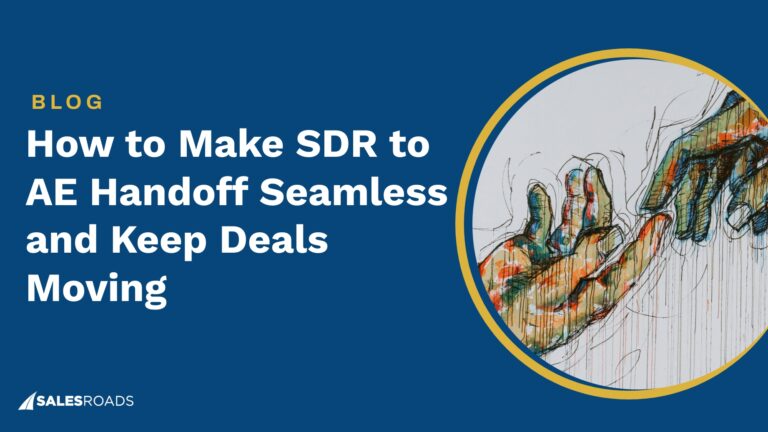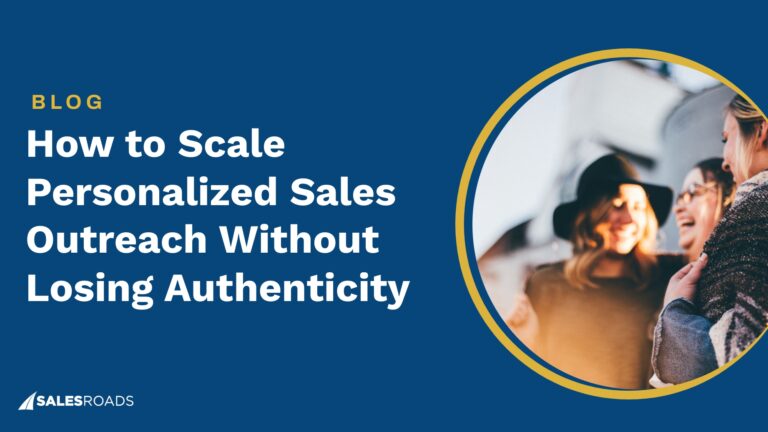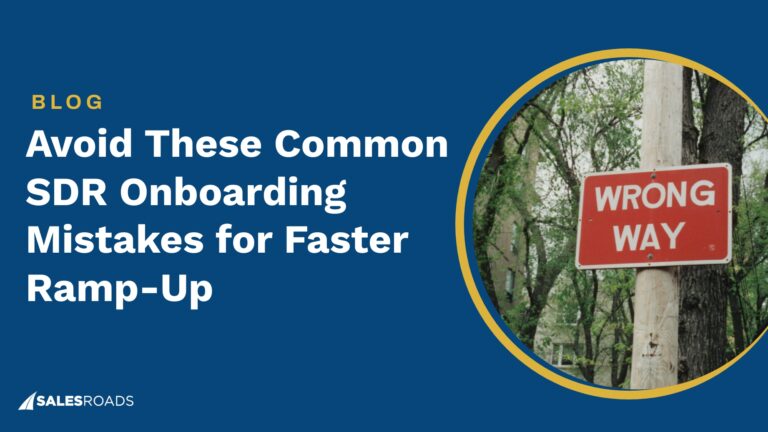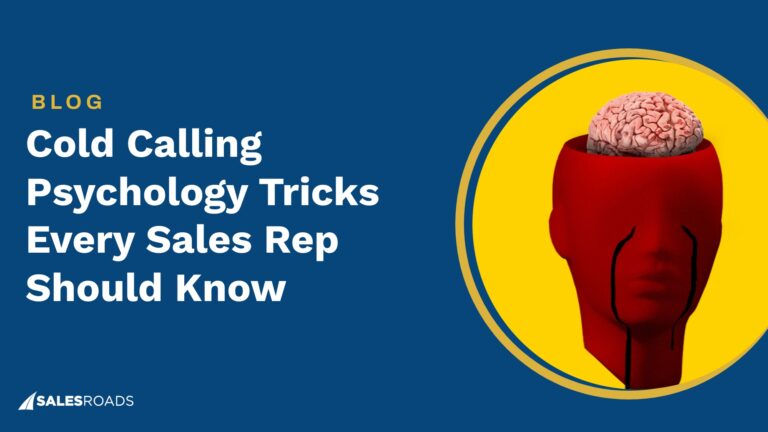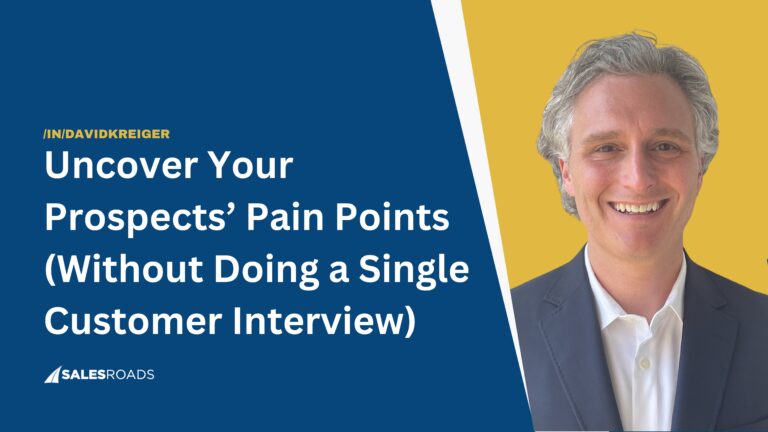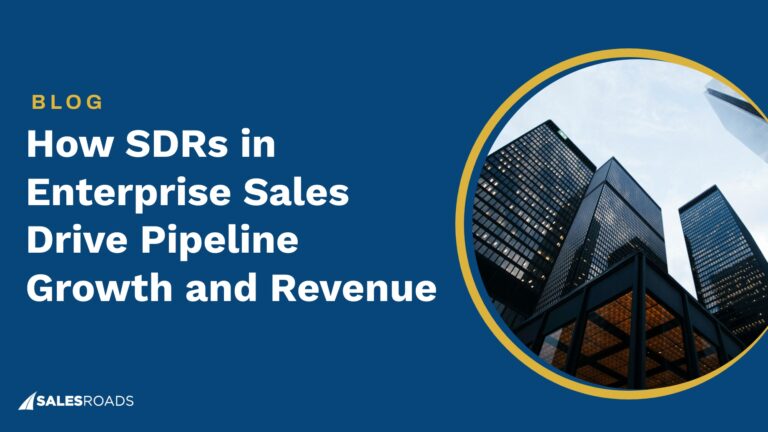Sell Like A Leader – Episode 22
In this episode, we dive into:
– Leadership coaching and training in sales: Building a robust leadership bench within sales organizations, how to have conversations about career aspirations and leadership roles within your team, coaching reps to think strategically like leaders, avoiding common missteps in promotions, repurposing talent within your team, bridging the gap between theoretical training and real-world sales scenarios, active leadership exercises you can use, encouraging self-evaluation and continuous learning, leveraging internal champions to guide AI adoption, maximizing productivity with quick disqualification of opportunities, and the power of connectivity at in-person events.
– Rapid Fire Q&A
About Rich DeGuzman
David Kreiger chats with Rich DeGuzman, an experienced revenue-focused GTM executive and VP at Vensure Employer Solutions, where he leads the national HCM West strategy. Rich’s expertise in GTM strategy, M&A, and B2B partnerships has earned him consistent recognition, including distinctions in the Chairman’s Club and Board of Directors.
Podcast Key Takeaways
- Rich DeGuzman emphasizes the importance of training and coaching future leaders within the sales organization. His approach involves integrating leadership training into daily activities, where team members are encouraged to adopt a leadership mindset and self-coach, thereby preparing for future leadership roles.
- A critical skill for salespeople is to quickly disqualify deals that are not the right fit. This allows them to focus on more promising opportunities and ensures long-term partnerships rather than short-term wins.
- Leaders should ensure they are continuously learning, upskilling, and taking the necessary breaks to recharge, which in turn enables them to be more effective and supportive for their teams.
- Rich discusses the importance of adopting AI in a balanced manner. He encourages sales teams to leverage AI for tasks like creating cadences and campaigns while ensuring that personal, human elements remain integral in communication.
Connects
Connect with Rich DeGuzman: https://www.linkedin.com/in/richdeguzman/
Connect with David Kreiger: https://www.linkedin.com/in/davidkreiger
Subscribe to the podcast and follow our Podcast LinkedIn page so you don’t miss any episodes!
Transcript
David: Welcome back to another episode of the Sell Like a Leader podcast, the podcast for revenue leaders who are on a mission to cultivate high-performing sales organizations. I'm your host, David Kreiger, founder of SalesRoads, America's most trusted sales outsourcing, appointment setting, and lead generation company.
Today, we bring you another revenue leader, Rich DeGuzman. Rich is a revenue-focused go-to-market executive with over 20 years of leadership experience, driving organizational growth and operational excellence. Currently, he is VP at Vensure Employer Solutions, which leads National HCM West Strategy.
Rich's expertise in go-to-market strategy, M&A, and B2B partnerships has consistently placed him in the top 1 percent through Chairman's Club and Board of Directors distinctions. Wow, Rich, that is a great background.
Rich: I sound amazing. Thanks, Dave. [00:01:00] Glad to be a part of it today.
David: Thank you so much for being on the show here. Excited to dive in here.
And, Rich, one of the things that you've mentioned for cultivating a high-performing sales team within your organization is your philosophy on training and coaching for future leadership.
And you want to cultivate basically a leadership bench, which I think is a pretty cool concept. And so I'd love to dig into that. Can you talk to us a little bit about what that looks like, your approach, and why you think it's a good one?
Rich: Yeah. At the end of the day, if we're not cultivating our leadership bench, we're really doing ourselves a disservice. At the end of the day, your top leaders within an organization are folks that have found success within the sales organization. Oftentimes, we find successful sales folks. Oftentimes, those successful sales folks move into a leadership role, but they haven't had the opportunity to be exposed to what it actually means to lead.
So [00:02:00] then, we find ourselves in this vicious cycle in sales—we've all experienced it before—where you're working for a manager that is a super seller, but not necessarily a super leader. So when I mean that I'm cultivating a culture and an energy around super consultants that do a fantastic job of working with businesses, there is also a layer of looking at it from a leadership lens.
And what I mean by that is, as our folks are going through a process, are we exposing them to how a leader would look at a particular deal? So for example, when a rep would come to me and ask directly and say, "Rich, I 100 percent believe this deal is going to come through," I want to take them through the coaching mentality of how a leader looks at that.
So you're bringing a deal to me, and you're saying it's going to close. Then my ask back to you is, why do you think it's going to close? Can you sell me this deal based on this company? Can you share what [00:03:00] the value proposition is and why a company would want to make a switch? And if they can articulate that to me—find out my budget, authority, need, and timeline—position the right solution for me and convince me, then I know that they're going to more than likely position the right solution for the client.
That being said, they start to think a lot more strategically rather than "I'm just trying to sell them something." So now that they understand the process that I'm bringing them through—the coaching aspect of it—they're now in turn looking at themselves and asking the question before they come to me.
So that's one aspect of how we start coaching people and getting them aligned with self-solutioning. The other aspect that we do is, within my large organization—I'm running a fairly large organization—I have folks looking left to right. So, even with generalized team meetings, I don't have our leaders speak and run those meetings.
We have typical KPIs, [00:04:00] forecasting, knowledge, things of that nature. Every quarter, we assign them to each rep. Each rep is responsible for owning, collecting KPIs, collecting numbers, finding and sourcing and curating information to share with the team, and they share with each other. And that teaches them very quickly that trying to pull information and KPIs from their counterparts is like herding cats and dogs.
So very quickly, that's a very quick lens of what it looks like to be a leader. But in turn, it also trains that person to not also be the problematic child that doesn't provide the information. So it's really twofold, where they're learning the habits of the tactical side of running a team meeting—pulling information, curating that from their folks—but then they're also seeing the struggles that sometimes it takes to pull the information from their teammates. And in turn, they're now learning subconsciously, "This is a challenge when I have to pull this information, so now [00:05:00] when my leader asks for it, I'm going to provide it," or, "I'll always have this information available for them."
So things like that, where the folks that we have in our region, in our teams, are actively participating and pouring into their own team, into their organization, and into the whole entire region. And that's how they start to act and think like a leader.
David: I really like that because I think you started with the whole concept that we've all felt, where in sales, a lot of times we promote the best salesperson who's not necessarily the best manager. And so I think that there are concepts where you do some pre-training with them and things like that. But what I like about your approach, Rich, is that you've built it into the regular day-to-day. It's not like they go to a separate leadership training, which maybe they do.
But these are principles—and I think people learn better when it's embedded in their work—and you are using a good principle, I think.
Anyway, a lot of times—and this is something we do with our team—we ask them [00:06:00] to self-coach, analyze their calls, give their feedback first before the manager, but you're doing it through a prism that I hadn't thought of before, where they're actually learning the skills of being a manager by coaching themselves.
And so I think that is a really interesting prism, because the more that we can integrate training into day-to-day work versus, I think, like a classroom setting, the more effective it can be.
Rich: Yeah. You're hitting a lot of things right on the head. The reality is we learn better on the job. Real-life experiences—the touch, feel, taste, sounds—all those things. The fact that they get to experience that early on in their career, they can also start crafting the right messaging when they finally do have the opportunity.
And, you know, oftentimes we'll find people that say, "I don't want to do this." And that also helps redirect as well. Most people think that leadership is one way, and the reality is it's completely a different way.
Things that you think that you're going to be doing—you think you're going to have [00:07:00] all this free time. The reality is, good leaders are obsessed over their people. They're obsessed with career progression. They're obsessed with upskilling their folks and providing a runway for them to find that success.
And you're no longer working through yourself to get to the end result. You're now thinking about how do you work through your people to help get to your results. And that's a big eye-opener for a lot of those reps that are experiencing working as a pseudo-leader, interim.
David: I think that's hugely important because I think what you said, I completely agree with. I think a lot of times people will take the management job because they think that's what they should be doing. And they have no idea whether they're going to like it or not.
And it's hard not to promote sometimes the best salesperson when they kind of maybe deserve it because of that reason.
So the more that you can both be able to analyze whether they're going to be good in the job or more—I like what you said—they can figure out themselves whether they would like the job, you can avoid a lot of really bad mistakes because that [00:08:00] mistake hurts two ways, right? You lose your top producer, and you promote a bad manager.
Rich: Yeah, I agree.
David: It's powerful.
Rich: I agree. A lot of it, too is surrounding career progression. I really talk about—oftentimes—I don't care how old a person is, like, who do you want to be when you grow up?
So we talk about this is your designation today. For instance, if you are a small business seller and you're tasked with addressing this market and that's what you're going after, who do you eventually want to grow into?
Does that mean you want to be a leader, or do you want to be exposed more to more strategic, long-term enterprise sales? What are we doing as a leadership to, number one, set the correct expectation for them?
And what I mean by that is, Dave, I think you're great in small business, but do you have the skill set to be exposed and handle the strategy for an enterprise type of a sale?
So that's where we need to also lean in more as a leader and have that honest conversation and [00:09:00] sometimes say, "You're not quite ready yet. But let's figure out the steps that it takes you to prepare you for the next step," because it's not just we're going to thrust people right into leadership.
It is the whole, let's identify who you want to be when you grow up. How do we help get you there so that you do reach that goal? And are we setting the right expectation of that timeline to hit that goal?
And oftentimes, like I said, it also comes back down to, they oftentimes realize that they don't want that leadership route. They figure out that, "Wow, I really can make more money selling. I actually really have more freedom as an individual contributor."
But now I know that my leaders are really invested in helping me, perhaps get to that next level. Or maybe I want to focus on technology. Maybe I want to focus on a nonprofit.
Like how do we help guide and shepherd our folks through their next step? And that's what I was chatting about earlier, around that connectivity—like how much do we know our people? How much are we invested in ensuring that we're pouring back into them, right?
That's how we also help try and keep people sticky to the [00:10:00] organization and help fuel their fire to want to continue to hit KPIs and goals because it's an environment where they feel like they're thriving.
David: Yeah. And so I'd like to take that and shift gears slightly—how you're really understanding your people, getting to know your people. I noticed on LinkedIn, you ran an annual sales kickoff with over five—
Rich: 100 people. Bonkers.
David: That, that is awesome.
Um, you know, and so I'd love to, to get a sense, that's a big investment. That's a big investment monetarily, of time and things like that. What is your vision? What do you see that your team gets out of those in-person events, and how do you structure them?
Rich: For the record, let me state that this was not me. We have a whole entire team around setting these huge kickoffs and meet and greets as an organization, and couldn't be more grateful for them. The difference maker is just connectivity. COVID taught us a lot of things.
I don't want to bring it back to that, but [00:11:00] the reality is we've learned that we can partner and work in this virtual environment. We've done it globally for quite a while, but now it's become mainstream. It's become second nature with domestic-type evaluations. It is a game changer in the sense that you're really getting all of the energy from the individual top to bottom.
So right now, you and I, Dave, met for the first time during this interview, right? I see this snippet, this portion of your face. I can surmise that you're engaged because you're leaning in and we're having this conversation. You've been in the industry for a very long time. When you walk into a room, you can smell it.
You can feel it, in some cases you can taste it. There's an energy and there's a vibe when there's connectivity, especially when you're dealing with people and you want to build partnerships and you want to just share and engage. There's something different about a handshake. There's something different about the energy and proximity that when you're [00:12:00] closer to a person, you really do read body language, good, bad, or indifferent, but then you understand the environment.
I am so appreciative that our organization really does invest in pulling our folks together, and we're talking about these are people coming across the globe, Dave. This is not just domestic to the U.S. We're flying people in globally to have direct connectivity, and it's a game changer because we're establishing a different cadence of our relationship.
I guarantee if, and when you and I meet in person, to break bread together is going to be a very different experience than what it is here. And when we meet together as a group, as one unit, as one body, you literally feel what the right hand and the left hand are doing. And then you really get just to open in dialogue.
That isn't confined by the four walls of a digital call. You explore things beyond what you would based on my 30-minute time block with you. And that's where the magic happens is that connectivity outside of [00:13:00] our designated work. And that to me is that game changer for in-person.
David: And are there ways that you help facilitate those engagements at those conferences, or do you like them just to be more organic and is that the point of it?
Rich: Yeah, like I said, we have a fantastic revenue and sales enablement team within our organization, and they do a fantastic job of ensuring that folks have great connectivity. And one example would be, we have breakout sessions, and within the breakout sessions, people are already pre-assigned tables and designations that are not a part of their typical region or area of expertise.
That way it's forcing people out of their day-to-day teams that they would be associated with so that you can create connectivity across different departments, across different organizations, across different geographic lines, and that absolutely helps to create the interesting culture that we have in our organization today.
David: That's awesome. With an organization your size and [00:14:00] with your team, what kind of formal training do you provide when you hire somebody or when you do promote them to the leadership level and what type of coaching process do you believe in?
Rich: We do have formalized coaching for every person that enters our organization. And I would say it's fairly standard in the sense of how people enter our org. We have a six-week training program that is virtual, that meets basically on the daily, that helps get a person stood up with just the inner workings of the organization, product-specific training, and it will all culminate with training.
Again, with an in-person live week session for a week. We literally, again, fly people, wherever they are, into one location. Typically, it has to be—it usually is at our headquarters—so they get a chance to see the mothership, so to speak. They get to see how the sausage is made. And they see it's a real tangible company, and just the different players that it takes to help support the sale.
And that's huge. And as far as the training [00:15:00] is concerned, we do have specific market training based on the individual contributor's role. And along that side, we have our leaders that also come alongside our individual contributors to coach daily, to help them get stood up because we have a lot of different complex products here and ways to go to market that it takes a lot of in-person and real-life scenarios to learn the product.
That's the better way to say it. It's one thing to have book knowledge, but it's also one thing to have a real-life application. So what we're trying to do is take what they're learning within their classroom-style setting, and how do you actually apply it to the real world and how do you make it relevant for the real world?
And that's the difference there.
David: And as you talked about previously, incorporating that type of coaching into almost your leadership training is—the classroom, there's important things you can learn in the classroom—but it is so much better to do it in real life, to do it in real scenarios, especially in sales as you're trying [00:16:00] to, like, maneuver through things.
There's so many different permutations of what we do. It's hard to teach for everything. And so the way you learn some of the nuances is by actually doing, right? Soö that's great that you guys incorporate a whole bunch of that into the actual training process. So as far as trends, in moving into 2025, we're at the beginning of the year here.
Are there any big trends that you're seeing that you think are going to be important coming into 2025 that you're thinking about, you're maybe working with your team on, that you're trying to analyze? What do you see going on in our industry?
Rich: Yeah. I'm going to blow your mind when I say this because you've never heard it before: AI. I mean, this is—I don't think this would be a podcast anywhere in this universe if we're not talking about AI and AI trends. I'm in the Bay Area, so I feel like I'm in the hub of everything AI-related.
That, that's really what it is. Like, how do we provide speed to market? How do we provide optimization and [00:17:00] things of that nature? The way that I see us utilizing AI, it's how a majority of folks see utilizing AI—around how are we creating cadences? How are we creating multi-touch campaigns?
How are we tracking it? How are you communicating with different market segmentations? AI has done such a great job of helping my people—and we're talking about people that are fresh out of college, we're talking about folks that are seniored reps—both have challenges. The new way of communicating, straight out of college, it's very much text message—not necessarily business savvy, and not necessarily the way that we want to receive messages from a business aspect.
And then you have folks that are seniored folks, where I come from the world of triplicate forms still. I still remember knocking on doors using a Thomas Guide. That's my generation. Triplicate forms for sales orders. How do you take folks like that and say, hey, trust this person or this AI to write for you, or trust this AI to create a cadence for you when they're so calcified in their way.
[00:18:00] So the challenge or the joy, I'm going to call it that we have is bringing AI into their day-to-day, but helping them understand and incorporate it in how they go to market, specifically with my sales organization.
David: So are there any places that you feel like are an entry point for that, so that people can start leveraging it if they're uncomfortable with it? For people who are more comfortable with it, how they can start using it—but in maybe a contained way and not necessarily go off the rails—anything that you guys are leveraging to be able to start using it without opening up a can of worms?
Rich: Yeah. We believe in opening up the can of worms and just violently executing and just trying it. You got to try it. You got to jump off the deep end. But the reality is, this goes back to what I chatted about earlier around building leaders and helping each other and looking left and right.
I referenced like the two different pendulums [00:19:00] of the types of sellers that we have here, but we also have folks that have already adopted it. So they become the internal champions. It's one thing for your boss or your leader to say, Hey, you must adopt. It's another thing when you and I, as colleagues who are experiencing the same thing.
And I say to you, Dave, I'm using ChatGPT or I'm using Claude AI. I'm using Copilot. Here's how it's helped my sales process. Let me show you how I'm utilizing it today. And if it makes sense for you, fantastic. Incorporate it into your day-to-day. If it doesn't make sense to you, then don't use it. That's how I view it.
And just that aspect of electing a champion internally, and that's what we do, and it's intentional. I have somebody that literally talks about how do we champion our internal technology tech stack that we have available for them. And that is a part of what we have. Internally, we happen to use Copilot, but it's no differently than all the other ones that I've mentioned.
And they will go through how they use it from a day-to-day. How [00:20:00] does it impact their sales? How do they use it for email communications and so on and so forth? And that's how we've helped adopt that and not feel like a mandate. But it's more of a pluser, a multiplier on how they could be even more efficient.
And at the end of the day, it's always focused on how do we put money in your pocket too. And by putting money in your pocket is doing right by the clients. How do we also provide the best evaluation, the best types of resources, and go to market for them? And it's just by helping with automation and helping with a clear message.
David: At the end of the day, it's tough. It's tough to find the right balance, but with AI, especially since we, I guess, we're now a year and a half in, but it's still so early, and it's a mind shift. And so I've definitely found with my team that a lot of it is just doing and getting a sense of what it can do, what it can't do, what it does well.
Giving feedback when I see people maybe overusing it and underutilizing their brain, and finding that right [00:21:00] balance. But yeah, I think all of us are trying to figure out, it is, I think, the most amazing tool since the internet—maybe even more than the internet.
And it obviously, when used the right way, has tremendous power for sales. I think, unfortunately, when used the wrong way, like we've seen with some of the cadence engines and things like that, where we think we're going to increase productivity to salespeople, we just increase spam, it can do that.
So we're all trying to figure out the right way to use this, where we can empower our team to be able to understand their prospects better and then be able to deliver the solutions that they're looking for.
Rich: Agreed. And, you know, I love what you said. You can tell when people are over-rotating and using it, and that is their default. And that reminded me of how we actually utilize it internally. They said, to your point, let's test it amongst ourselves before you test it out into the real world.
They'll send communication between each other. So it's a form of role-play that they do. And the receiver will—they play a game with themselves—and the receiver [00:22:00] will either say, no, this was AI or this was you writing it. But then how do you take AI as your launching pad, but then how do you also humanize it and bring your voice to it?
And oftentimes I say this, even with like email cadences—and this is why I sometimes struggle with "read from this script"—because the reason why I'm hiring you, Dave, is because I want them to feel your flavor too.
I want them to hear your energy. So it's the same thought process, if you think about it. Here's your script. Here's your AI. But now make it your own. Humanize it. Ensure that when they meet you, because if you do your job correctly, they will meet you, that the tone of that communication or the tone of whatever is being sent out matches the person behind the scenes. Wicked is very popular right now.
Wizard of Oz. Are you matching? Is this person? But then you're really this diminutive person in the back end—or vice versa. It should both feel super authentic, even though we're leveraging it to be a multiplier for us.
David: Well said. Well, we like to do rapid-fire questions. [00:23:00] And I'm going to ask you a series of questions, and if you can just give us a sense of what you're thinking about that. Sound okay?
Rich: Sure. Let's do it.
David: So, first question. What is one thing people don't give enough value or attention to in leadership?
Rich: You know what? They don't give themselves grace, and they don't give themselves space. Typically, I would listen to that question and say, Hey, you know what? We should be doing more for our reps, our regions.
Personal experience and the fantastic mentors and leaders that I've had in the past they are so obsessive over their people. But what we don't do oftentimes is give ourselves time and space to pour into us.
Meaning, are we continuing to self-educate? Are we continuing to give ourselves breaks throughout the day because we are continually withdrawing of ourselves, right? We're a basic emotional, mental ATM for our people, as we need [00:24:00] to be.
But we also need to deposit and put back into ourselves. So what are we doing to get us into a space where we're not depleted? What are we doing as leaders to educate ourselves so that we can continue to give back to our folks?
David: Grace and space. Love it. What is one skill you advise everyone in sales to master?
Rich: Oof. Disqualify yourself from a process as fast as you can. And that's actually our thought process. It's interesting because I listen to a lot of influencers. Everyone is like, How do you flip a deal? How do you lower the zone of resistance and all this stuff? And all of that is great. I subscribe to it.
But the reality is—and this is the difference maker—do I want to sell now, or am I looking for a long-term partner in success? Am I wanting to be—and this is my mission statement for this year—are we going to be a good steward?
Good steward of our time, a good steward of the businesses and the people, the humans that we meet with.
And oftentimes that means, [00:25:00] Dave, saying that what you're doing is just fine today, or our solution isn't the right fit for you. So, how do you ingrain that in the salesperson?
When we're told KPIs, KPIs, KPIs—numbers, numbers, numbers—quotas, quotas, quotas. But I'm also saying at the same token too, my top-performing reps, the people that I have making P Club, Chairman's Club, running at that clip, disqualify opportunities that are not the right fit early and often so that they can focus on deals that are ready to move forward, that really do need that solution.
So don't waste your time on things that are not going to impact you. Don't waste your time forcing, flipping a person or a company. Your job is to highlight, plant the seed—whatever's popping and growing up, growing in your garden—you start reaping the rewards from that.
Don't focus and force a seed that's planted to grow when it's not ready to grow. So that's really what it is: disqualify, move on as quickly as possible. Hardest thing for people to get.
David: Love it. [00:26:00] Favorite business, leadership, or sales book?
Rich: Ah, I had to pull this up because this is an oldie but a goodie. So I told—I'm sharing my age—but it's okay. Dale Carnegie. If you haven't done a Dale Carnegie course, go do it.
Classic How to Win Friends and Influence People. I had to look it up again because in my mind, I still remember the very basic color blocking of the red, white, and red book that it is.
Get it today. It's such a basic, but it's a goodie. And it really just comes down to putting a process into what most sales professionals do naturally, in my opinion. Most people know how to engage. Most people are charismatic. Most people know how to connect the dots. But it's another thing when you start to understand the mechanics behind it.
Some people are natural sports players. They can pick it up very quickly. But once you start telling them, the reason why you are good at what you do is because you naturally pull that right shoulder back. And then when you release that follow through is exactly what we're looking for. So [00:27:00] now my natural ability is something that I can replicate every single time.
And that's what I love about it. Where it seems like, oh, we're trying to influence. We're trying to manipulate. But the reality is, it's: how do you just take the mechanics behind connectivity and make it repeatable? And I just love how simple it is. And a lot of these are not earth-shattering, but it's really interesting to just go through it and just understand how do you add those mechanics to your day-to-day.
David: Yeah, it's a timeless classic. What is the most important goal or project that you are working on right now?
Rich: Cultural shifts within our organization. From just my day-to-day, we are tasked with splitting two huge go-to-market strategies and products within our organization. And I'm responsible for one leg of the organization, and it is a new product. We're bringing in new sellers. So, you know, I was not being cheeky when I said we're probably gonna have over a [00:28:00] thousand in our next kickoff.
We are hiring at a clip of 35 new sellers a month. It's big. It's really rapid and it's incredible. It's a very exciting time to be here. So the biggest project right now is obviously hiring, but then also sharing and standing up the vision for 2025.
And how do we actually want to go to market? What markets are we trying to represent? Where is the best entry point? And having our folks understand that vision and their role and how to attain that big rock.
David: That's really exciting.
Rich: It is super exciting, man.
David: And lastly, just to bring us on home, what's your favorite quote, mantra, or saying that inspires you as a sales leader?
Rich: I'm going to pull it up so I don't mess it up. "So today I will do what others won't so tomorrow I can do what others can't."
We've heard this multiple times, but it just still comes down to being a good steward. Meaning, be responsible for your day-to-day.
Do the work that it takes to carry that brick. Lay the foundation and do it one brick at a [00:29:00] time. Do it today. Because by the end of that process, as long as you lay one brick every single day, your home will be built and your future self will thank you for it.
So there is no quick way. There's no quick path to build that house. You know, people can have some prefabbed houses, but it's not going to be yours. But if I can find people that naturally carry that brick and will do the day-to-day activities relentlessly—rain, sleet, snow, shine, doesn't matter the conditions—you will have a house that you will be proud of.
David: Ah, so well said. Rich, this has been fantastic. I love the energy, love your leadership philosophy. I know a lot of folks are getting a lot of great nuggets out here today. And if they want to connect with you or learn more about the work you're doing, where's the best place to check you out?
Rich: Slide into my DMs. That's the best way. LinkedIn.com backslash RichDeGuzman. Happy to chat with anyone.
David: Oh, fantastic. Thank you, everyone, for tuning into another episode of Sell Like a Leader [00:30:00] podcast. If you like what you heard here, please write us a review on your platform of choice. And if you have any questions for me, you always can hit me up on LinkedIn.
Thanks so much for listening.
Thanks so much, Rich, again. Appreciate it.


